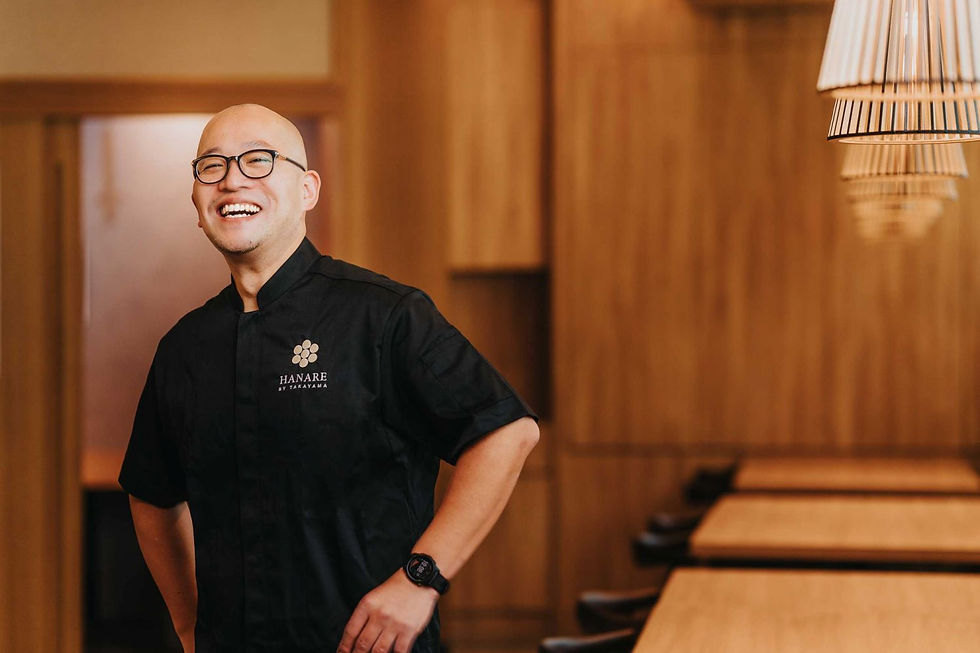Cool And Collected: Singapore Chefs Share How They Stay Calm in the Kitchen
- Chef TQ

- Feb 14, 2022
- 2 min read

How do our local chefs keep their cool in the kitchen? Find out how they also nurture their staff to be the best they can be
The heat is always on in a restaurant kitchen—literally and figuratively. Aside from the fact that the culinary team has to deal with fire from the stove, oven and grill, tempers often flare up due to the fast-paced and stressful nature of the job. Thus, it is common for head chefs to lose their cool—à la Gordon Ramsay in Hell’s Kitchen—during service. While some would argue that yelling (or being yelled at) is part and parcel of restaurant life, mistreatment of staff (both physical and verbal abuse) has no place in the kitchen. So, we ask Singapore’s top chefs how they keep their cool in the kitchen and foster a positive work environment. After working in the F&B industry for more than 10 years, group executive chef Seow Tzi Qin of Menu Pte Ltd Restaurant Group understands the value of “paying it forward”. Having been in their shoes, he tells Tatlerthat “while I try to seek perfection, I also understand that this isn’t 100 per cent possible”. Mistakes are always bound to happen and his advice to leaders is to be “forgiving at times” and allow the staff to learn from these experiences that build character. Mentors also need to lead by example and “impart their technical skills and values such as positivity and resilience” to nurture the future talents of the F&B industry.

Maintaining your zen in a ‘pressure cooker’ environment is no easy task. Just as Petrina Loh, the chef-owner of modern Asian restaurant Morsels, who admits that it took a while before she mellowed down at work. “There is a thought process now, I think before I yell,” she says, adding that she now prefers to jot down unfortunate incidents (instead of losing her cool on the spot) so she can discuss with the staff later on. When she does, she lets on that “talking more on a friend level and mentor level makes it more welcoming.”
She also credits her team who has been by her side for “a good period of time”, given that they already have a mutual understanding of each other’s buttons, motivation factors, and styles of learning and working. She adds: “It is easier to solve issues when things go south”.

How do you foster good teamwork? Taro Takayama, the chef-owner of his eponymous kappo restaurant and casual Japanese establishment Hanare by Takayama, ensures that everyone is working towards the same goal. “I get to know them, their dreams and what they hope to achieve from their time in the kitchen here with me,” he explains, so he can help his staff achieve them together. He lets on: “I don’t expect anyone to stay with me forever; I merely hope to be able to impart some lessons, skills and techniques for those who come my way.”



Comments